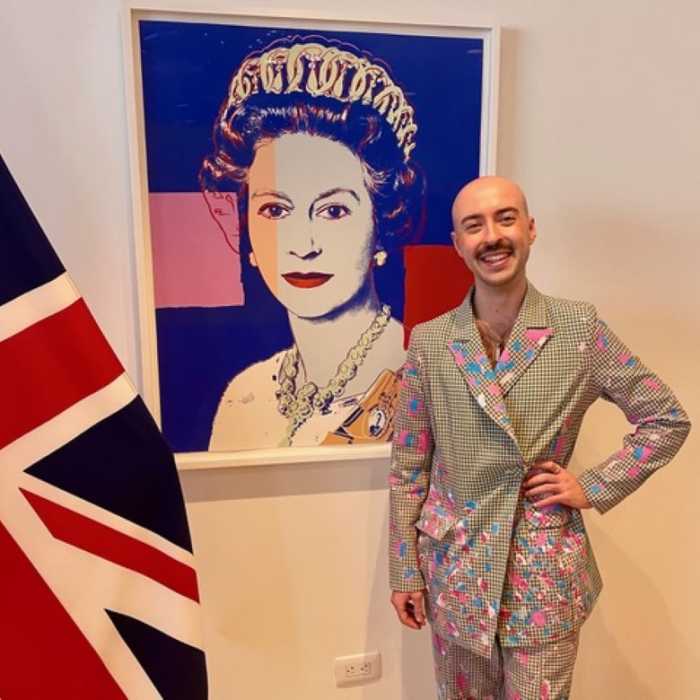BY ELI JACOBSON | Tchaikovsky Opera and Ballet Theater of Perm, Russia celebrated its 135th anniversary with a US tour that included stops at the Brooklyn Academy of Music and Carnegie Hall. Perm, a large industrial city, is situated in northern Russia at the foot of the Urals by the Kama River. The respected ballet troupe has toured internationally but this was the first US appearance of the opera troupe.
The BAM engagement was a one-night stand (January 16) in Tchaikovsky's masterwork “Mazeppa,” only recently performed in the U.S. The physical production was not on an international level but the musical and vocal performances were a delightful surprise.
“Mazeppa” from Tchaikovsky Opera; Gotham Chamber joins in too.
Artistic director George Isaakyan's production was a mishmash of penny-pinching minimalism and a naive attempt at abstract modernist symbolism. The unit set consisted of white drapes, an eagle's claw clutching a globe and a platform with stairs.
This was augmented by increasing groups of huge nails as Mazeppa's lust for power and lack of moral responsibility destroyed the Kochubey family. Film projections of volcanic eruptions and surging waters during orchestral interludes did not clarify the story or themes of the opera.
However, the musical performance under Valery Platonov was stylish and the orchestra performed with precision and passion as did the fresh-voiced, hearty chorus. The local soloists were augmented by rich-voiced, commanding Kirov-veteran baritone Vladimir Chernomortsev as the perfidious Mazeppa. Chernomortsev's second act aria to the wife he is about to betray was a showstopper. The home team did themselves proud with the radiant soprano Irina Krikunova as Maria and the sonorous, passionate young basso Alexander Pogudin as Kochubey.
Company stalwarts, soprano Tatiana Polouektova and tenor Sergey Perminov, had more limited voices but passionate commitment as Lyubov and Andrei. The audience was enthusiastic at the end and went home fully satisfied.
A larger cross-section of the company displayed its talent two nights later in an all-Tchaikovsky concert at Carnegie Hall. Orchestral and choral pieces alternated with ensembles and arias from a wide cross-section of Tchaikovsky's operatic oeuvre, familiar and obscure.
Wisely, the strongest singers were given the greater solo opportunities while more variable staff singers were showcased in rare but well-done ensemble pieces. Irina Krikunova's soaring, silvery top and firm musicianship shone in two solos from “The Enchantress (Chorodeika)” and “The Queen of Spades (Pikovaya Dama).” This soprano puts many of her Kirov and Bolshoi compatriots to shame and would grace any international stage.
The fetchingly pretty and rich-voiced young mezzo Nadezhda Babinzeva commanded the stage in arias from “Oprichnik” and “Orleanskaya Deva (Maid of Orleans).” Chernomortsev brought down the house with his rendition of Tomsky's card aria from “Pique Dame.”
A particular highlight was a duet from the unfinished “Undina” sung by tenor Viktor Kompaneev and soprano Ekaterina Orlova. The melody was later reused in another encounter between mortal prince and aquatic mystery maiden – the “Swan Lake” Act II adagio for Odette and Siegfried.
Two conductors, Platonov and Alexander Anissimov, led the choral and orchestral forces in other great moments from “Iolanta,” “Tcherevichky,” “Eugene Onegin,” and “Mazeppa.” Once again, the audience reacted with enthusiasm at the end.
Gotham Chamber Opera also explored Slavic heartbreak in the wilderness with a staged evening of vocal works by Janacek and Dvorak entitled “Scenes of Gypsy Life” (seen January 19 at the Morgan Library). The concept was to marry Dvorak's “Gypsy Songs” (familiar from recital repertory) with Janacek's two-hander song cycle “Diary of One Who Disappeared.”
Janacek's song drama for tenor and mezzo with piano accompaniment is the story of a young farmer who, driven by desire for a gypsy maiden, abandons his family and the land for a nomadic life outside social convention and responsibility. Unwisely, the director Eric Einhorn confused the simple, universal story with that of Prosper Merimée's “Carmen.” Einhorn recast the farmer Jenicku as an obsessed, homicidal sociopath who eventually murders the gypsy Zefka and imprisons the other gypsy girls at knifepoint to recount his tale in flashback. The story is better supported by Bizet's operatic treatment and obscured the intent of Janacek's human fable of social constraint vs. individual freedom with cheap melodrama.
Tenor Garrett Sorenson's ringing tenor as Jenicku showed promise for youthful heroic roles in the German repertory despite some stress on a climactic high note. Beguiling mezzo Abigail Nims has a dusky voice and presence that perfectly suited the gypsy temptress Zefka. Three fresh-voiced young mezzos opened the hour-long program with the Dvorak songs as a staged prelude showing daily gypsy life before the Janacek cycle ushered in extraneous violence and theatrics.
Artistic director Neal Goren presided at the piano and the level of musicianship was high. The scenery by Cameron Anderson was practical and evocative – if only the antics enacted before the set were as intelligently conceived. However, Gotham Chamber Opera remains a company to watch and certainly was a company to listen to on this January evening.

































